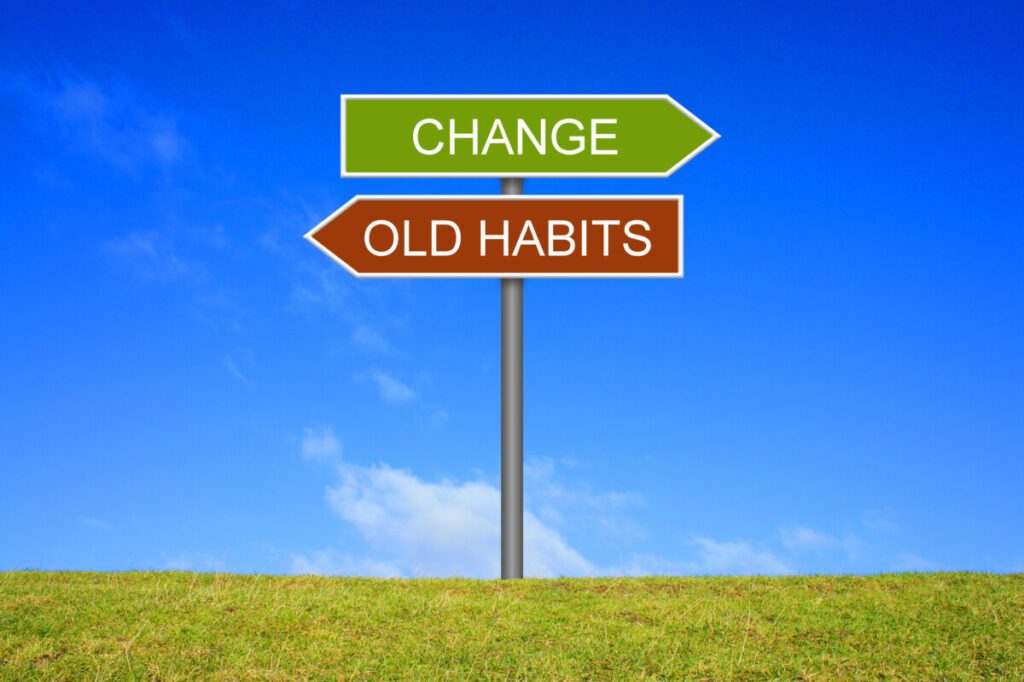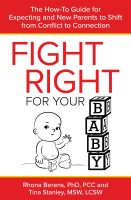Repetition of the same thought or physical action develops into a habit which, repeated frequently enough, becomes an automatic reflex. – Norman Vincent Peale
People are creatures of habit, as the popular saying goes. We get into grooves that, over time, become autopilot ways of responding to or thinking about ourselves, others, the tasks at hand, the past, present, and future, our environment, and the world-at-large.
Some habits are helpful—e.g., flossing your teeth, checking your rearview mirror, reaching for your beloved’s hand—while others are less so—e.g., procrastination, conflict avoidance, criticism. Then again, what constitutes a productive habit in one instance is sometimes unproductive in another and vice-versa: Touching your spouse in the midst of a fight might literally or figuratively push them away, while avoiding conflict with someone unsafe is a very wise impulse.
Bottom line: Whether helpful or unhelpful, consciously crafted by you or unconsciously cultivated over time, habits are a normal part of being human, as is the desire to change those that no longer serve you well.
As a life coach, a good portion of my work with clients is about helping them better understand the habits that most block their path to their goals and gain greater clarity about the values, priorities, and yearnings that are more important than the patterns that sometimes stand in their way.
As the many published and posted resources on changing habits suggest, though, just as it takes time to cultivate one, so too does it take time to alter it, to carve a new neural pathway to if not replace, then at least disengage the same old, same old pattern. That’s an empowering transformative process not to be underestimated.
And when it comes to habits it’s sometimes only part of the puzzle. Sure, patterns are hard to change because they become automatic reflexes, the unconscious go-to responses most familiar to our brains and our bodies. Yet we also remain faithful, often deeply so, to unproductive even destructive habits because:
Most if not all habits—including those we dislike, yearn to shift, or want to eliminate altogether—offer payoffs of one kind or another.
In other words, “bad” habits serve us and they do not serve us. Yes, yes, the patterns we can’t stand offer plenty of challenges, loads of reasons to insist they undermine who we most want to be and what we most desire. They also deliver goodies that contribute to remaining entrenched, trapped in patterned ways of being, thinking, and feeling.
Unproductive habits keep us coming back for more not only because they provide a path that we’ve walked many times; they also offer stepping-stones to which we remain drawn or devoted. (By the way, the very familiarity, the well-tread quality of our patterns, whether welcome or unwelcome, is in and of itself a payoff.)
I can’t tell you how many times over the years I’ve asked a client to name just one payoff for a habit they want to yet struggle to break, and their response has been a resounding: “I can’t! There are no payoffs!” They respond that way whether they’ve set their sights on ridding themselves of persistent communication patterns, like habitual blame or self-criticism, or on shifting patterns to which they devote distinct chapters of their lives, like a deeply dissatisfying relationship to which they return over and over again or a dead-end job about which they complain year in and year out yet refuse to quit.[1]
My clients’ responses make a lot of sense: After all, why would we be so unhappy with those habits if they offered benefits? And if, for argument’s sake, a few benefits exist, why would they hamper our ability to alter what we so obviously want to change?
First things first: Our dissatisfaction with a habit coexists with the payoffs we receive from it.
Second: Payoffs, even those that seem small, or those we believe are far less important than the goals we hope to achieve by altering our habit, resist best efforts to change because they keep us tethered and bound. (Other things sometimes keep us tethered and bound, too, e.g., some habits emerge as protective mechanisms in response to trauma, so while they might not serve us in some ways, or might no longer serve us in real-time if trauma has passed, those patterns and the protective payoff might remain firmly entrenched.)
If we solely focus on what doesn’t feel good about our present circumstances, or only privilege our desire to feel better, we sometimes stay stuck reaping benefits of which we remain unaware. As a result, we neither consciously choose those benefits nor intentionally stop choosing them. I know that sounds confusing, so bear with me.
Take the habit of blaming others as an example. It’s true that, sometimes, other people behave badly. On occasion, then, and for good reasons, those people contribute directly to our own discontent. In those cases, it makes sense for us to hold them accountable for some of the ways in which they impact us. Yet if blaming others becomes habitual, or if we do so as a means of fully accounting for our problems, poor decisions, and challenging life circumstances, then we are likely in the territory of unconscious payoffs. Naming the benefits offered by the blame game, knowing more about what keeps us hooked to that pattern, provides further insights into our behaviors, what motivates them, and offers additional incentive to change…if the payoffs we currently enjoy pale in comparison to those we imagine in a future without that habit.
I’d love to provide a comprehensive list of payoffs for the patterns you most want to change. However, only you—sometimes those closest to you, too—know what you get out of behaviors, choices, or priorities that no longer serve you. Here are a few examples shared by clients over the years:
- The familiarity and predictability of patterned ways of being are, perhaps, the most common payoffs cited by clients; meaning, “the devil you know” and all that.
- That same familiarity offers a sense of safety, too, all the more so since change is inherently risky by inviting us to venture into the unknown.
- Counter-intuitive as it sounds, procrastination offers payoffs. Recent research suggests that procrastination is a form of emotion-management (not a result of poor time-management). Sometimes, we avoid doing or saying things—including doing or saying what might shift patterns—to bypass negative emotions we anticipate feeling were we to proceed, e.g., a sense of failure, the pain of hurting others.
- The time and energy saved by not changing is another benefit, i.e., there’s a degree of ease associated with habits that disappears with the effort to alter them.
- The pleasures of imagination are also benefits of stasis. As long as we don’t change a thing, we can fantasize about what might transpire if we were to change, we can create elaborate scenarios in our minds of what our habit-free future looks like, which can be as close to perfect as possible. Crafting, imagining, and maintaining that idealized vision is a payoff.
- The benefit of non-responsibility also makes the list because change involves agency, intentionality, and accountability for our choices or lack thereof, while maintaining our existing conditions demands none of that.
- Related to the payoff of non-responsibility are rewards of perception and reputation, e.g., being seen by others as good, kind, generous, supportive, humble, tolerant, strong, independent, self-sufficient, or successful. Here, the pleasures of self-righteousness, martyrdom, victimhood[2], or roles like being the underdog, sometimes arise and offer the, often ambiguously, satisfying experience of feeling right, put upon, unappreciated, or misunderstood. Sometimes changing habits means letting go of any or all of these things.
If you’ve been trying to break a habit yet keep struggling to do so, try discerning the payoffs offered by the status quo. Here are a few prompts to assist in that process. Consider jotting your responses in a digital note or saying them aloud to better “own” and absorb them. If answers elude you, ask someone you trust for their insights.
- Even though I believe that my habit of [fill-in-the-blank] hurts me more than it helps me, I realize it offers me small benefits like [fill-in-the-blank].
- That benefit—or benefits if you discern more than one—holds me back because [fill-in-the-blank]. (Cite all the reasons you can think of the benefit[s] that keeps you rooted in current patterns, including those that are illogical, unfounded, confusing, mystifying, or disconcerting.)
- The following priorities, values, or possible outcomes of shifting this habit are more important to me than the benefits of not changing: ____________________________. (List as many things you can think of that offer inspiration to change despite the benefits of not doing so.)
- Now, note why they are more important. Consider how they will serve you in a more fulfilling or sustainable way than the patterns and payoffs that hold you back.
- Take a moment to offer yourself some self-compassion for how hard it is to change this habit and how the benefit(s) has made that process even harder. (You might say something to yourself like: “Even though I’ve really wanted to change this pattern, I know it’s especially hard to do so because of benefits it offers like [fill-in-the-blank]. Now that I know the payoff[s], I can be more at choice about how I approach this habit moving forward.”)
Acknowledging the benefits that often accompany dissatisfying habits deepens your understanding of what holds you back from altering them. If you also offer yourself some self-compassion for your attachment to your patterns—however strong or tenuous it might be—you reach a deeper layer of self-understanding that often lays the groundwork for the wherewithal and incentive to break those habits…unless you decide the benefits are worth the discomfort. In which case, perhaps, it’s time to embrace those very habits as part of who you are and get on with your one wild and wonderful life. 😀
[1] When combined with working on a relationship or improving a work situation, “staying put” can be a productive strategy. That’s not what I’m referring to here.
[2] Let’s differentiate the payoffs of assuming a victim role, which is what I mean here, from being the victim of physical, emotional, verbal, or psychological abuse or assault. In the latter instance, effecting change—e.g., leaving an abusive relationship—is a far more complex process and one that often requires outside support—e.g., therapy, legal counsel—to ensure your safety and wellbeing, and process your experiences.

Rhona Berens, PhD, PCC
Rhona is a Professional Individual & Relationship Coach who works with Leaders, Parents, Couples, Business Partners, and other personal and professional relationships to increase relationship fulfillment and effectiveness in personal and professional Relationship Systems.
In addition to her work as a compassionate, fun and inspiring coach, Rhona is a skilled Speaker and Trainer. She delivers workshops to parents, birth professionals, educators, and teams. As an author, a recovering academic—Rhona was an Associate Professor at UC-Irvine for nine years—a former senior executive, and business consultant, Rhona brings a breadth of experience to her coaching.


